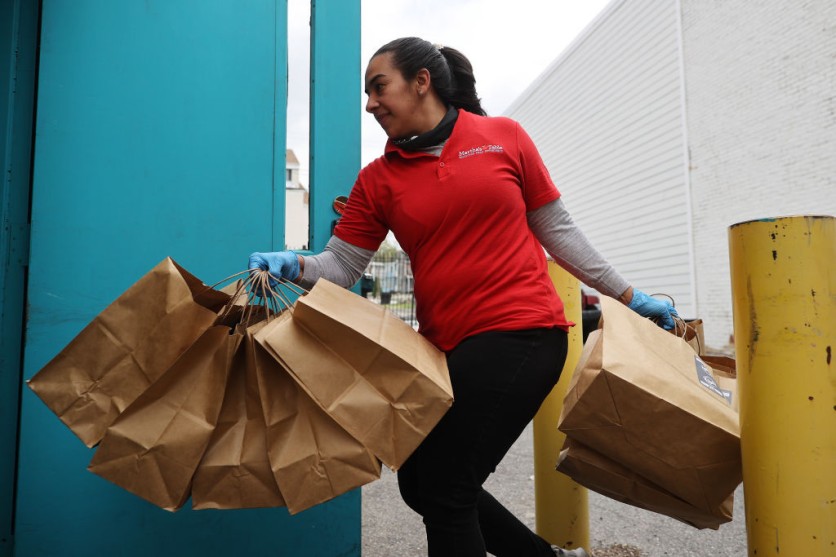Food delivery companies Uber, DoorDash, and Grubhub have initiated legal actions to invalidate the law implemented by New York City, which establishes a minimum wage for app food delivery workers.

Uber, DoorDash, and Grubhub Sued New York City
Three food-delivery-app companies, namely Uber, DoorDash, and Grubhub, sued the city on Thursday, saying that the new wage law would only hurt delivery workers than help them.
DoorDash and Grubhub filed the lawsuit jointly to the New York state's Supreme Court, while Uber, the Uber Eats' parent company, filed its suit separately.
The companies sought orders to block the law from taking effect on July 12 while the lawsuits proceeded for probable rulings to strike this law permanently.
Reuters reported that the law, which was announced last month, will require app-based food delivery companies to pay delivery workers $17.96 per hour, which will eventually rise to almost $20 in April 2025.
Companies can decide between paying the workers per delivery or hourly even if they do not make any deliveries, and it would be based on the hours workers are logged into the app.
App delivery workers are normally treated as independent contractors rather than company employees. Thus, general minimum wage laws do not apply to them.
They are usually compensated based on the number of deliveries completed instead of on an hourly basis. A news release from New York City said in a statement that, on average, food delivery workers currently make $7.09 per hour, excluding tips.
In announcing the new law, New York City Mayor Eric Adams said in the statement that the law would guarantee that "these workers and their families can earn a living, access greater economic stability, and help keep our city's legendary restaurant industry thriving."
He added: "Our delivery workers have consistently delivered for us - now, we are delivering for them."
Potential Outcomes
However, the firms in the lawsuits said the regulation was legally flawed since it was based on flawed studies and statistics, The companies further noted that the local government's surveys of delivery workers were "inherently biased" and designed to evoke responses that would justify a minimum wage.
To offset the additional labor expenses, the companies said they would have to make an increase that would be passed on to customers, resulting in fewer customers for delivery workers, The Washington Post reported.
Uber noted that increasing the minimum wage would only hurt local restaurants as the higher costs could discourage customers from ordering.
Wall Street Journal reported that this was not the first time these companies battled with New York City. They also sued the local government in 2021 over a legislation to license food-delivery apps and permanently cap commissions they can charge restaurants.
DoorDash also filed a suit over another rule that required it to share more data with New York City restaurants. The two lawsuits are ongoing.
Related Article : Class-Action Lawsuit Against Grubhub, DoorDash, and Uber Eats For Outrageous Commission Fees

![Apple Watch Series 10 [GPS 42mm]](https://d.techtimes.com/en/full/453899/apple-watch-series-10-gps-42mm.jpg?w=184&h=103&f=9fb3c2ea2db928c663d1d2eadbcb3e52)



